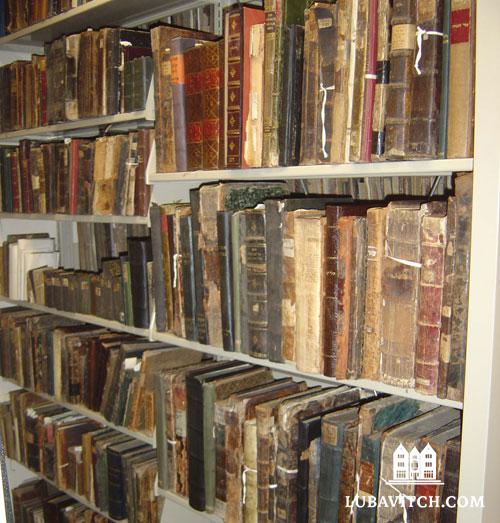(lubavitch.com) Two thousand Jewish books, most from the 16th century, are now available online in a searchable, printable format at www.ChabadLibraryBooks.com.
The books comprise less than 1% of the greater Chabad-Lubavitch Library collection (Library of Agudas Chassidei Chabad), one of the largest private Jewish book collections, housed adjacent to Lubavitch Headquarters in Brooklyn, NY.
Access is limited to protect the rare books, which have survived through a tumultuous history of fires, World Wars, Communist confiscation and court battles. The web project, undertaken in conjunction with The Society for the Preservation of Hebrew Books (www.HebrewBooks.org), opens them to worldwide perusal.
“If you do want to serve people today, the proper way is to provide them the ability to search the library through the Internet,” said Rabbi Sholom Ber Levine, director of the Library of Agudas Chassidei Chabad.
Gems among the volumes now available for reading online, downloading and printing are two versions of a book by 13th century scholar Maimonides published in 1550 by rival, non-Jewish, Venetian printers.
“They are rare, rare editions,” Rabbi Levine explained. These two versions benefited from competition because the printers one-upped each other with corrections and text checking.
Scanning, image cleaning, and rendering the text of sometimes blurred and smudged letters legible to search engines took two years. Extensive measures were taken to preserve the centuries-old texts during the digitizing process. Specialty scanners that maintain the books in a neutral, binding friendly position were used. Devices that automate the page turning process were deemed too rough for the fragile pages. Project managers spent hours flipping page after page, using techniques that kept the pages free from acidic finger residue and damaging fingertip pressure.
HebrewBook.org director Chaim Rosenberg is intensely involved in seeing the project to completion. “It is a massive digitization project,” Rosenberg said. His Hebrew Books association is a nine-year-old, not-for-profit organization dedicated to digitizing rare Jewish books and making them available, in searchable format, online. Currently, Hebrew Books and Chabad have 15,000 Jewish books digitized and available online.
Chabad’s contribution adds a significant chunk to the number of books available, as full texts, online. At 15,000 books, the online library is sizable in comparison to other Jewish digital book collections. There are over 700 books, dating back to 1390, in the Digitized Book Repository of Israel’s Jewish National and University Library, the world’s largest collection of Jewish books and research materials. The Jewish Theological Seminary’s digital collection offers 1,218 selections.
The library stands out as a free resource. No subscription or credentials are needed to search its holdings. Digital collections available for purchase such as Otzar Torah UMachshava’s 18,700 volumes come with a $1,470 price tag; Bar Ilan University’s Responsa Project is available at $40 per month.
In the coming months, Chabad’s 17th century collection will begin to be scanned. There are 15,000 volumes to select from this era, but only those that are non-duplicates and add to the scope of the collection will be digitized.
The task is great, but it’s the group of books published from the 1850’s on that has Rabbi Levine most concerned. That’s when mass produced paper began to include chemicals that kept printing prices down but left the pages prone to disintegration as they aged. Extra care will be taken and with all books that are part of Chabad’s ongoing effort to preserve the literary, scholarly legacy of the People of the Book in a most modern and accessible form.

Be the first to write a comment.